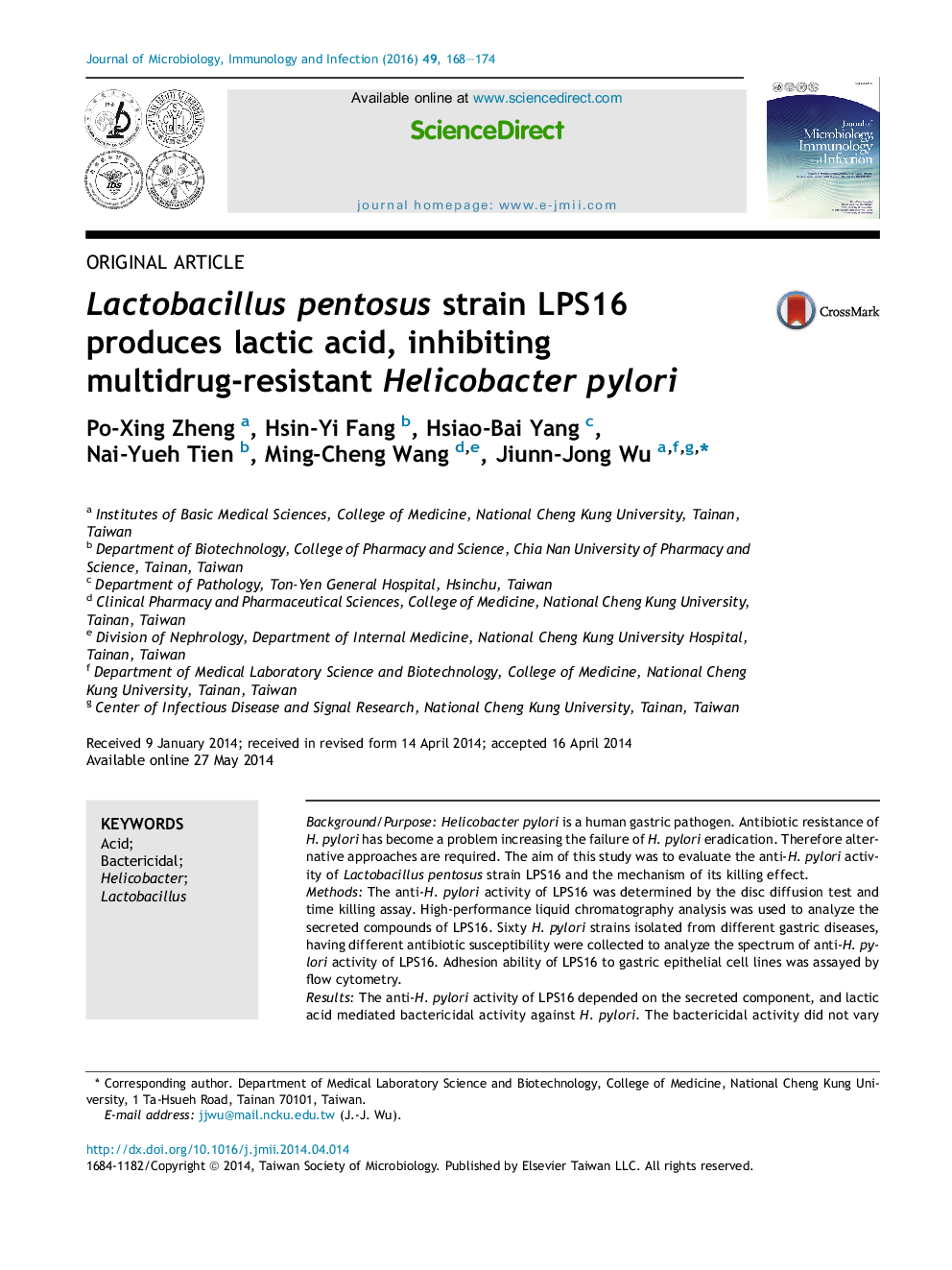| Article ID | Journal | Published Year | Pages | File Type |
|---|---|---|---|---|
| 3377721 | Journal of Microbiology, Immunology and Infection | 2016 | 7 Pages |
Background/PurposeHelicobacter pylori is a human gastric pathogen. Antibiotic resistance of H. pylori has become a problem increasing the failure of H. pylori eradication. Therefore alternative approaches are required. The aim of this study was to evaluate the anti-H. pylori activity of Lactobacillus pentosus strain LPS16 and the mechanism of its killing effect.MethodsThe anti-H. pylori activity of LPS16 was determined by the disc diffusion test and time killing assay. High-performance liquid chromatography analysis was used to analyze the secreted compounds of LPS16. Sixty H. pylori strains isolated from different gastric diseases, having different antibiotic susceptibility were collected to analyze the spectrum of anti-H. pylori activity of LPS16. Adhesion ability of LPS16 to gastric epithelial cell lines was assayed by flow cytometry.ResultsThe anti-H. pylori activity of LPS16 depended on the secreted component, and lactic acid mediated bactericidal activity against H. pylori. The bactericidal activity did not vary significantly among the strains isolated from different diseases having different antibiotic susceptibility. Moreover, LPS16 can adhere on gastric epithelial cell lines AKG and MKN45.ConclusionL. pentosus strain LPS16 had the broad-spectrum anti-H. pylori activity, suggesting that it can be used to prevent H. pylori infection.
